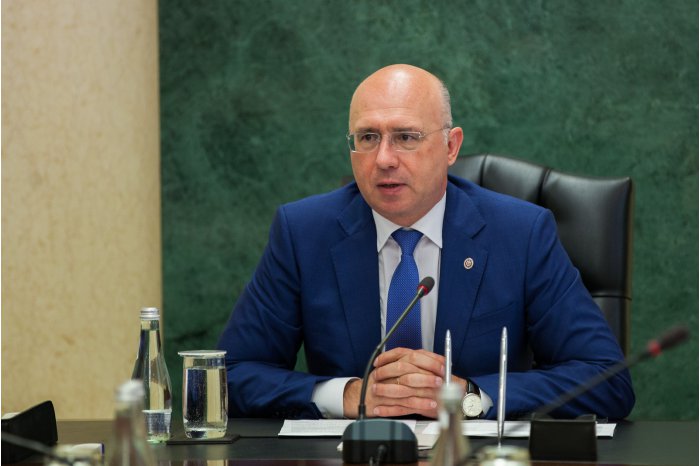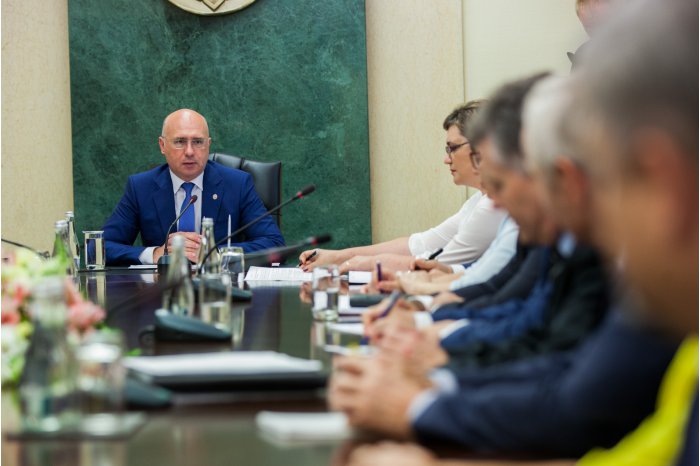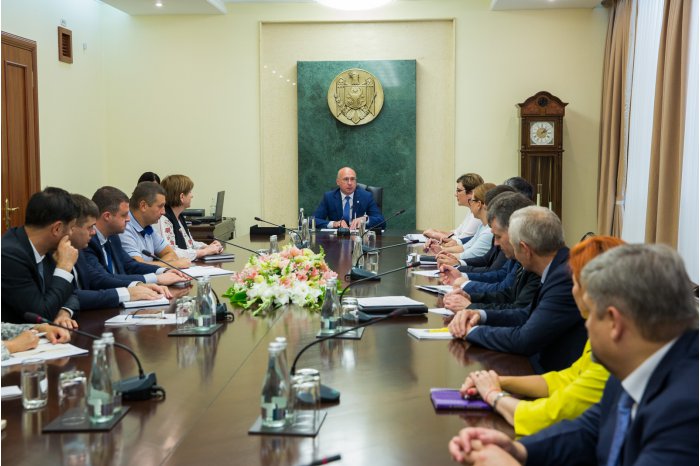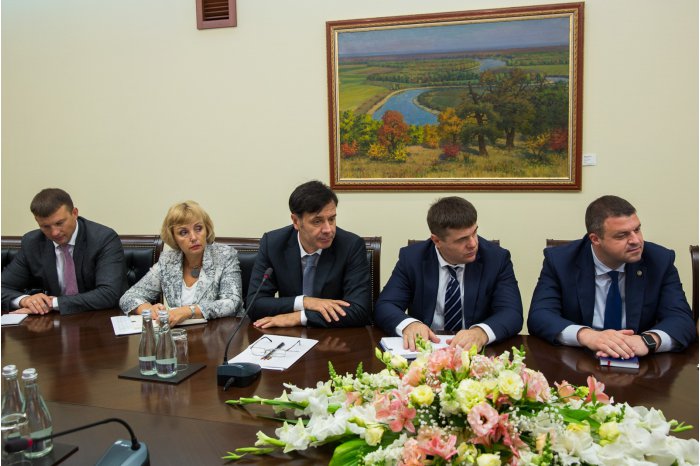Moldovan PM advocates good quality of people's servicing
19:28 | 19.07.2018 Category: Official
Chisinau, 19 July /MOLDPRES/ - Actions for optimizing the work of the reorganized central public administration authorities were discussed by Prime Minister Pavel Filip and directors of entities subordinated to the government today. The PM stressed that meetings in this format would be held periodically, in order to ensure a permanent communication between the authorities which have a major role in the enforcement of policies and interaction with people, the government’s communication and protocol department has reported.
The prime minister demanded that the activity of the reformed institutions be focused, as a priority, on the comfort of citizens and economic agents. “My request is that you attract special attention to the quality of servicing – people should be contented,” Pavel Filip said. In particular, he highlighted the avoiding of the formation of queues. According to the PM, the entire reform of the central public administration (APC) was aimed at making more efficient the providing of services, with the stake put not on optimizations, but on the creation of strong institutions.
The prime minister said that the reformation process had been practically completed – some institutions are to give final touches to their regulations on work, to employ persons with leadership offices, as well as to approve methodologies of calculating tariffs to the services provided to residents.
The leaders of the reformed entities thanked for the support provided in the reorganization process. At the same time, they asked for authorities’ involvement to overcome organizational difficulties. Thus, the participants in the meeting tackled subjects on identifying the headquarters for the institutions set up by merger, archiving documents in electronic format and improving the level of wage payment to employees.
Also, the participants in the meeting emphasized the importance of a good cooperation between agents, in order to quicker get information needed for citizens, with an eventual digitalization of the exchange of data and diversifying instruments of inter-institutional communication.
After the reform, the central public authorities subordinated to the government are made up of: Investments Agency, State Agency on Intellectual Property, Agency of Medicines and Medical Devices, National Agency for Research and Development, National Food Safety Agency, Public Property Agency, National Statistics Bureau, Inter-ethnic Relations Agency, National Social Insurances House, National Health Insurances Company and the State Protection and Guard Service.
The Public Services Agency, Electronic Governance Agency, Information Technology and Cyber Security Service, National Anti-doping Agency and Reforms Implementation Centre work as public institutions subordinated to the government.




